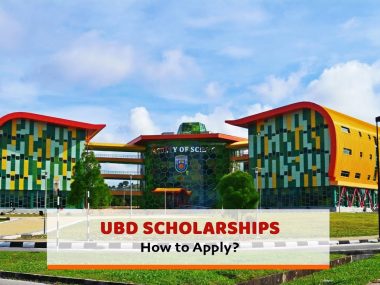The Fulbright Scholarship stands as a beacon for academic excellence and cultural exchange, fostering mutual understanding between nations.
Established in 1946, this prestigious program enables individuals to pursue advanced studies, conduct research, and teach abroad.
With a mission to promote cross-cultural collaboration and address global challenges, the Fulbright Scholarship has become synonymous with intellectual enrichment and diplomatic engagement.
Aspiring scholars from various disciplines vie for this opportunity, seeking to contribute to a shared world of knowledge and bridge international divides.
This guide encapsulates the essence of Fulbright, where education transcends borders, nurturing a community of global thinkers and ambassadors.
Eligibility Criteria for Fulbright Scholarship
1. Academic Excellence
Fulbright Scholarships are highly competitive and typically require applicants to demonstrate outstanding academic achievements.
Candidates are often expected to have a strong academic record, including a high GPA and relevant coursework in their chosen field of study.
2. Educational Background
Eligibility often depends on the applicant’s educational background.
Fulbright Scholarships cater to a diverse range of disciplines, from STEM fields to humanities and social sciences.
Prospective applicants must hold a bachelor’s degree or its equivalent to be considered.
3. Language Proficiency
Proficiency in the language of the host country is a crucial criterion.
Since the Fulbright Scholarship aims to facilitate meaningful cultural exchange, applicants may need to provide evidence of their language proficiency through standardized tests or interviews.
4. Research or Study Proposal
Applicants are typically required to submit a detailed research or study proposal outlining their project’s objectives, methodology, and expected outcomes.
A well-crafted proposal not only demonstrates the applicant’s preparedness but also aligns their goals with the Fulbright mission.
5. Leadership and Community Involvement
Fulbright values individuals who exhibit leadership qualities and a commitment to community engagement.
Applicants are encouraged to showcase their involvement in extracurricular activities, community service, or leadership roles, emphasizing how these experiences contribute to their overall profile.
6. Cross-Cultural Sensitivity
A fundamental aspect of Fulbright Scholarships is promoting cross-cultural understanding.
Applicants should demonstrate an appreciation for diverse perspectives and an ability to adapt to different cultural environments.
Previous international experiences, if any, can strengthen the candidate’s application.
7. Career Goals and Impact
Fulbright seeks candidates with clear career goals and a vision for the impact of their studies or research on their home country and the global community.
Applicants should articulate how the scholarship aligns with their long-term aspirations and contributes to positive change in their field.
Overall, Fulbright Scholarship eligibility encompasses academic excellence, a relevant educational background, language proficiency, a compelling research or study proposal, leadership qualities, cross-cultural sensitivity, and a commitment to making a meaningful impact in the world.
Aspiring Fulbright scholars must carefully address each criterion to enhance their chances of securing this prestigious opportunity.
Application Process and Requirements
1. Initial Research and Program Selection
The Fulbright application process begins with thorough research on the available programs and host countries.
Prospective applicants should carefully review the Fulbright website, program catalog, and specific country requirements to identify the most suitable opportunity aligned with their academic and professional goals.
2. Online Application Submission
Once a program is selected, applicants are required to complete the online application form.
This includes personal information, academic history, and details about the proposed research or study project.
The application form serves as the foundation for the entire process and requires careful attention to detail.
3. Letters of Recommendation
Applicants are typically required to submit letters of recommendation from professors, employers, or other individuals who can attest to their academic and professional qualifications.
These letters play a crucial role in providing insights into the applicant’s character, achievements, and potential for success in the Fulbright program.
4. Statement of Grant Purpose and Personal Statement
Fulbright applicants must submit a detailed statement of grant purpose outlining the objectives, methodology, and significance of their proposed project.
Additionally, a personal statement is often required to provide insights into the applicant’s motivations, experiences, and how the Fulbright opportunity aligns with their long-term goals.
5. Language Proficiency Tests
Depending on the host country and program requirements, applicants may need to demonstrate proficiency in the language spoken in the host country.
This often involves taking standardized language tests such as the TOEFL or IELTS.
6. Interviews
Shortlisted candidates may be invited for an interview as part of the selection process.
The interview provides an opportunity for applicants to further discuss their proposals, demonstrate their passion for the program, and showcase their ability to navigate cross-cultural experiences.
7. Fulfillment of Country-Specific Requirements
Each host country may have specific requirements or additional documentation needed for the application.
It is crucial for applicants to thoroughly review and fulfill these country-specific requirements to ensure a complete and competitive application.
8. Application Deadline and Submission
Adherence to application deadlines is paramount.
Applicants must submit their complete applications, including all required documents and materials, before the specified deadline.
9. Late submissions are generally not accepted.
Navigating the Fulbright application process requires meticulous planning, attention to detail, and a strategic approach to presenting one’s qualifications and aspirations effectively.
By following the outlined steps and meeting all requirements, applicants enhance their chances of securing this prestigious scholarship for international academic and cultural exchange.
Conclusion
The Fulbright Scholarship encapsulates the spirit of global collaboration and academic excellence, providing a platform for individuals to transcend borders, pursue knowledge, and foster cultural understanding.
Aspiring scholars, armed with passion, purpose, and a commitment to positive change, embark on a journey that transcends academia, leaving an indelible mark on the interconnected world.
Fulbright alumni stand as testament to the enduring impact of this prestigious program, reinforcing the belief that education is a powerful catalyst for shaping a future where diversity is celebrated, and international cooperation becomes the cornerstone of progress.
The Fulbright Scholarship continues to illuminate pathways to a brighter, more interconnected global community.



5 comments
Thank you for your sharing. I am worried that I lack creative ideas. It is your article that makes me full of hope. Thank you. But, I have a question, can you help me?
I don’t think the title of your article matches the content lol. Just kidding, mainly because I had some doubts after reading the article.
Can you be more specific about the content of your article? After reading it, I still have some doubts. Hope you can help me.
Your point of view caught my eye and was very interesting. Thanks. I have a question for you. https://accounts.binance.com/zh-TC/register-person?ref=VDVEQ78S
Thanks for sharing. I read many of your blog posts, cool, your blog is very good.